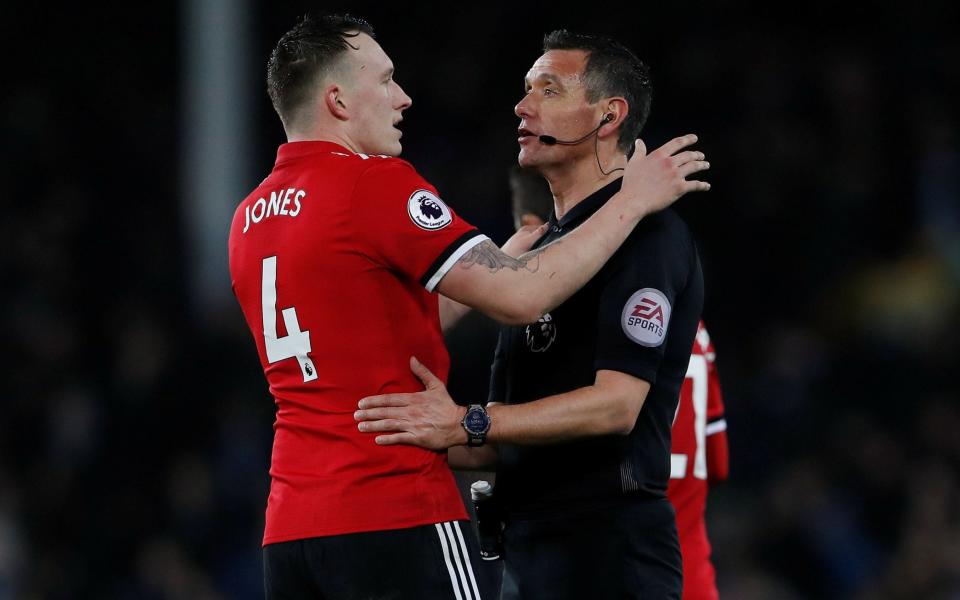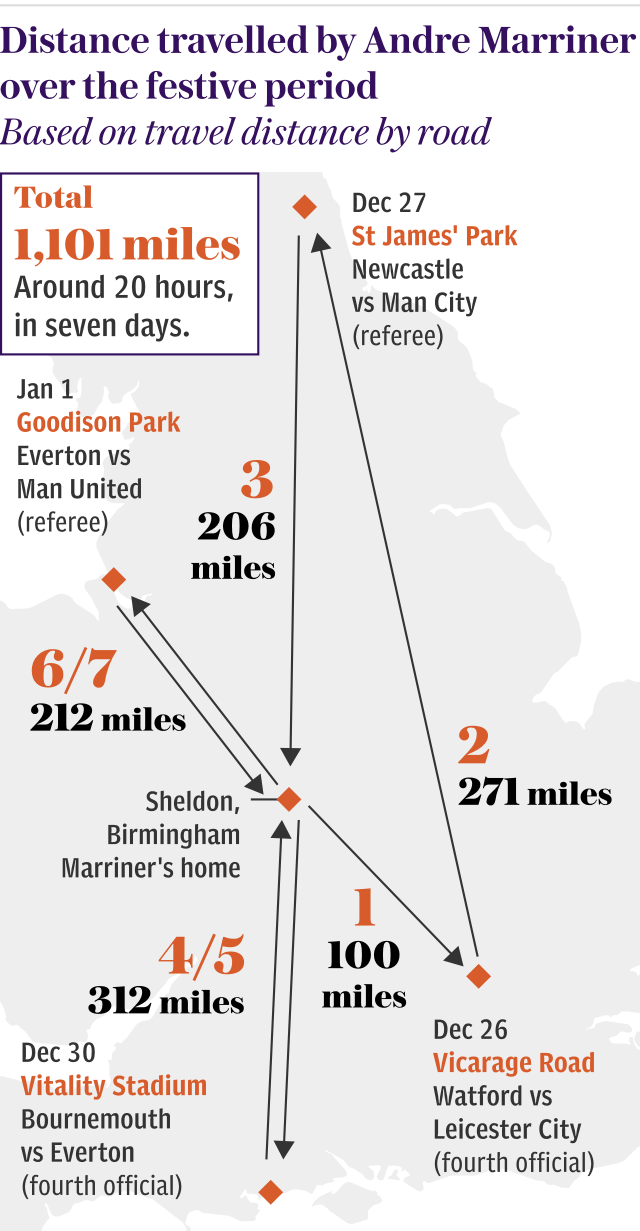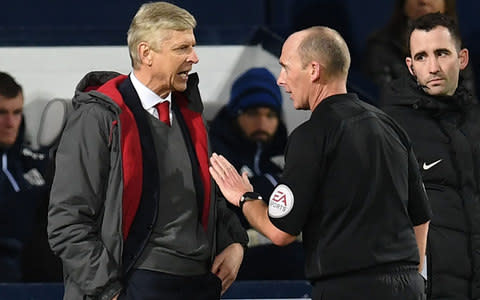Andre Marriner travelled 1,101 miles in seven days during festive period - is it any wonder Premier League referees made mistakes?

On Boxing Day morning, referee Andre Marriner got into his car and drove 100 miles from his home in Sheldon, Birmingham to a hotel close to Vicarage Road where he was fourth official for the Watford vs Leicester match. Partly for security reasons referees are warned off driving their own cars to matches, and are instead chauffeured along with their assistants from the hotel to the stadium. One can only imagine that these journeys are joke-free affairs, with no backchat and the seat-belt rule strictly enforced.
Once Marriner, 47, had blown the final whistle at Vicarage Road, and completed his post-match duties - which includes performance analysis with a Premier League delegate and sometimes a discussion with an angry manager - at around 7pm, he was dropped off back at the hotel. At this point, he made the four-and-a-half hour, 267-mile drive up towards St James' Park where he was refereeing the Newcastle vs Manchester City match the following night.
Leaving the north east at around midnight the next evening after City's 1-0 win, Marriner then headed back to the Midlands where he arrived home in the early hours of December 28.
Having had a couple of days off, Marriner was back at work again on December 30, embarking on the 312-mile, almost six-hour round trip to the Vitality Stadium where he was fourth official for Bournemouth vs Everton. Two days later, Marriner was in charge of Everton's home match against Manchester United, which required a 212-mile, five-hour round trip to Goodison Park.
In the space of less than a week, Marriner covered 1,101-miles (around 20 hours in a car), which is longer than the distance from London to Madrid. Other Premier League referees travelled even further during the festive period, and most made or were close to the 1,000-mile mark.

Marriner managed to get through the gruelling schedule with no high-profile errors, but many of his colleagues were not so lucky.
Mike Dean, Craig Pawson and Jon Moss were among those lambasted for making critical mistakes in what was a phenomenally busy Christmas period.
We heard a lot from Premier League managers - Jose Mourinho and Arsene Wenger among them - about how their players were exhausted by the relentless run of games, but what about the referees?
Now, I'm aware that asking for sympathy for referees from football managers and supporters is a bit like saying to an enraged motorist: "Don't be angry, that traffic warden was merely trying to do his job in difficult circumstances."
But clearly these are issues that go beyond "Mike Dean wants to make it all about him". Just as with players, there needs to be more of an appreciation about the pressures being put on referees, and consideration as to how their workload can be better managed.

The 18 full-time professional 'Select Group' referees all officiated (either as the referee or fourth official) three or four Premier League matches between December 26 and January 4, but unlike players they could not be substituted if they looked in need of a rest towards the end of a game. And while players are mainly in their twenties, many of the division's elite officials are close to entering their sixth decade.
As a result, tiredness is a major issue for referees at this time of year. "They are human beings, not machines, so it's no surprise mistakes have been happening," former Premier League referee and referee's chief Keith Hackett told Telegraph Sport.
"It's not just physical fatigue, but also the mental fatigue because you’re not escaping from football. You're going from match to match with barely any rest and constant pressure from fans and media."
The pressure has been intensified in the last week by the public, and sometimes personal, criticism from Mourinho, Wenger and others.
It is worth remembering as well that the matches last a lot more than just 90 minutes for Premier League officials. After leaving their hotel, they must arrive at the ground two or three hours before kick-off to undergo security briefings, take part in a physical warm-up, and ensure that all technical equipment for the match is in place.

Afterwards they will receive a debrief on their performance from a former player or manager employed by the Premier League, and once half an hour has passed after the final whistle, both managers are allowed to enter the officials' dressing room. If a manager exercises this right, his mood tends to be as toxic as Wenger's when he berated Dean on Sunday after the referee's controversial penalty award against his team at the Hawthorns.
When all of these duties are completed, the officials will leave the ground - often a few hours after the final whistle, which can be close to 1am for an evening game.
For most of the season, it is a demanding - but manageable - lifestyle. During the festive period referees are pushed to the limit - just as the players, managers and all club staff are. But where clubs largely have themselves to blame for the fixture congestion at this time of year by signing a multi-billion pound TV deal three years ago, the referees have had no say in the situation they find themselves in.
Their remuneration also pales in comparison to that of the players and managers. Premier League referees typically earn around £100,000 a year, which is less than half what the division's elite players make in a week.
So, assuming the jam-packed festive schedule is here to stay, what is the solution?

Hackett believes that first and foremost Select Group referees should be relieved of fourth official duties and replaced by lower-league equivalents. This, he argues, would reduce their workload and prevent relations between referees and managers worsening by putting an end to placing fourth officials in the unenviable position of attempting to reason with furious managers.
More broadly, the issue of over-worked referees underlines the need for younger officials to come through and start taking their place.
The introduction of the Video Assistant Referee (VAR) should help officials, but its trial period suggests it will not be a panacea.
The current situation, where tired referees are being heavily criticised for making mistakes, also has implications for the wider health of football in this country.
"My worry is that the more errors that happen, the greater chance there is for a loss of respect to referees not only at top level but throughout football," says Hackett. "This sort of thing cascades down.
"Managers should not storm on the pitch and publicly harangue officials - it's not good for the game. They should respect the 30-minute rule and air their grievances behind the scenes."
For officials, the antagonism they receive only adds to a growing sense of exasperation. As Hackett says: "The level of criticism they get, and the lack of understanding is very frustrating for referees."

 Yahoo Sport
Yahoo Sport 





































